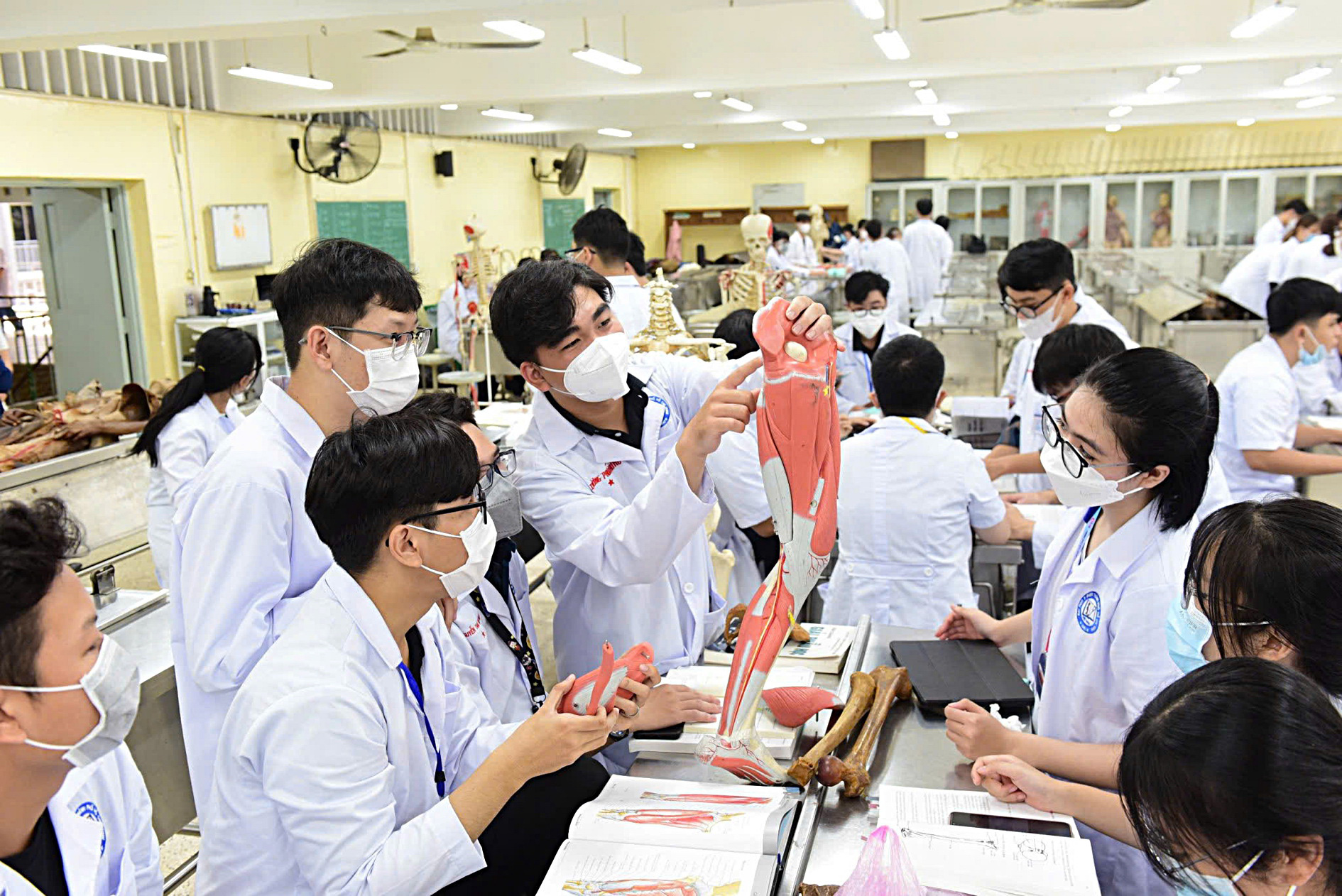
Students of Ho Chi Minh City University of Medicine and Pharmacy in a class – Photo: DUYEN PHAN
Tuoi Tre records the opinions of readers and people in the medical industry about this proposal.
* Mr. TRAN VAN THIEN (Deputy Director of Hanoi National University Hospital):
Creating conditions for medical human resource development
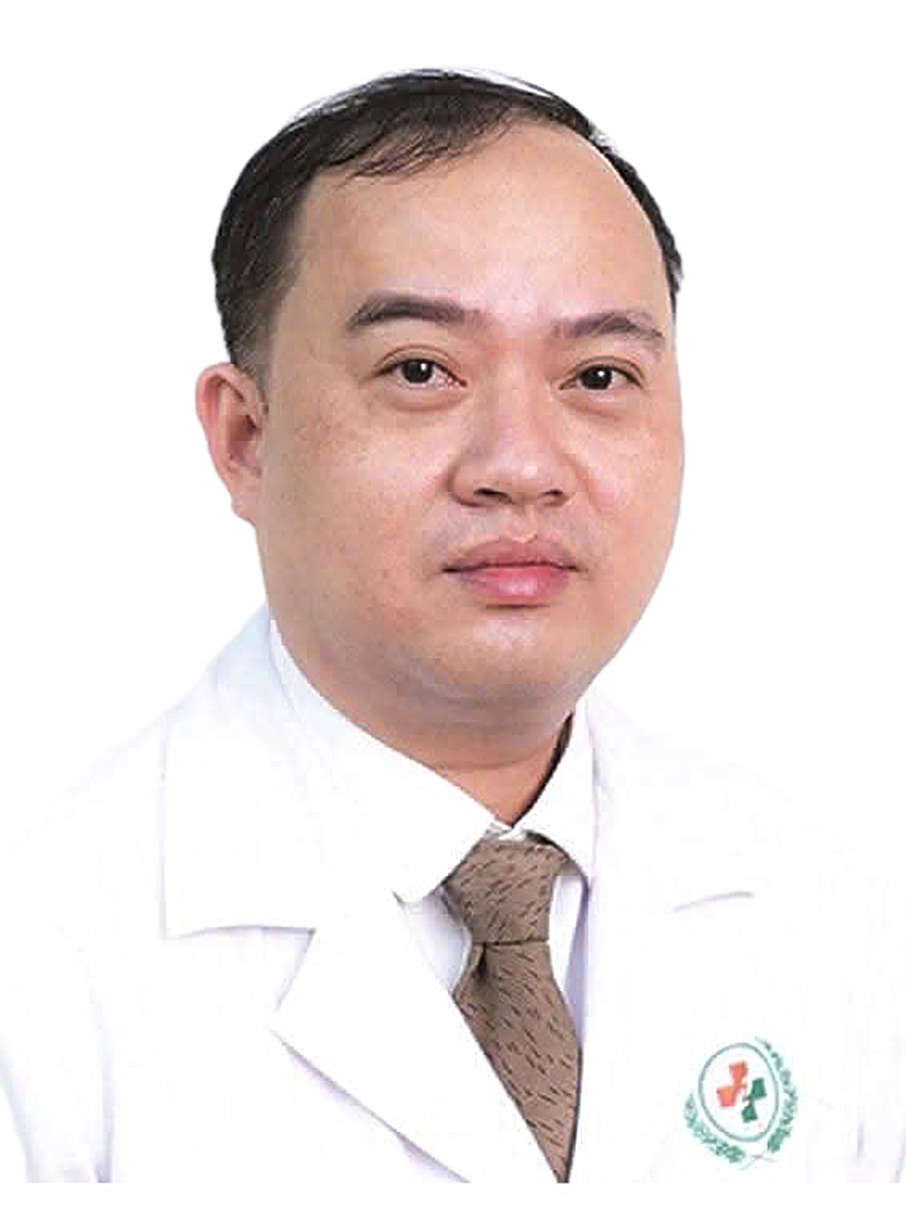
The entrance score of medical students is almost the highest among all majors. The training time is long, the schedule of classes, on-call schedules, and practice is very heavy.
In the past, when we were medical students, most of us did not have time to work part-time like other majors. Now the students studying at the school are the same.
However, in the past, tuition fees for medical training were not high. Nowadays, tuition fees are up to 20-40 million VND/year, even hundreds of millions of VND. After graduation, salaries are also modest.
We must clearly recognize the position of the medical industry - is this a "special" industry? Is there a shortage of human resources that requires policies to support attracting students and developing medical human resources?
The medical industry is responsible for taking care of people's health, so is it an important field to invest in and develop?
Only when we see medicine as an important profession that needs support will policies be truly effective.
The Ministry of Health's proposal to support medical and pharmaceutical students like pedagogical students will create many conditions for developing medical human resources, especially for students with difficult circumstances. The support can be calculated and implemented in the future.
* Student DOAN MINH QUY (2nd year, Can Tho University of Medicine and Pharmacy):
We need support to study well with peace of mind
The tuition fee for the first year is about 1.3 million VND/credit, I study 15 credits/semester, paying more than 20 million VND/semester. The tuition fee for the second year is more than 1.7 million VND/credit and each year I study three semesters. When I go for an internship, the cost of materials and tools is even higher.
Therefore, supporting tuition fees or living expenses for medical students is very necessary, helping us to study and contribute with peace of mind after graduation. At the same time, it helps many students who are good at studying but whose families do not have enough money to feel secure in taking the exam and choosing to study medicine.
* Associate Professor, Dr. DAM VAN CUONG (former vice principal of Can Tho University of Medicine and Pharmacy):

Budget pressure if support is given simultaneously
Medical students have to spend 6 years in university, and after graduation they cannot work right away but must continue to gain practical experience, study additional majors, etc. It takes about 9-10 years to be able to practice.
Support for tuition and living expenses will be a great source of motivation to attract people to enter the medical profession to confidently strive to study well to serve the work of public health care.
In my opinion, medicine is also a special industry like education. For now, we can choose 1-2 special medical specialties that are lacking human resources to support first.
* Doctor GIANG A CHINH (Chuong My District General Hospital, Hanoi):
Support for specific objects

I have been studying at Hanoi Medical University since 2017 and will graduate in 2023.
I am an ethnic minority and a poor family, and I am exempted from tuition fees. However, living expenses and accommodation are also a burden for a poor family.
Currently, training schools are financially autonomous, so many students are no longer exempted from tuition fees, and only receive a 30-40% reduction if they are eligible for tuition exemption or reduction.
Meanwhile, tuition fees are increasing dramatically.
Compared to the tuition fees of the education sector, the tuition fees of the medical sector are much higher. Therefore, it will be difficult to fully support the tuition fees like the education sector.
Should there be specific support policies for each group of students and each region?
For example, in areas lacking medical staff, poor students, ethnic minorities, etc., there should be policies to support tuition fees and living expenses to create local human resources.
* Student NGUYEN HIEN (4th year nursing major, Hue University of Medicine and Pharmacy):
Family will have less burden
Currently, the tuition fee I have to pay each year is more than 24 million VND. For nursing students who have just been admitted to the school in 2024, the tuition fee is more than 30 million VND/school year.
For a farming family in a poor rural area, the tuition fee was quite a large sum. Every time I paid the tuition fee, my parents had to borrow money from everywhere.
I used to work part-time to cover my living expenses. However, the time spent on practice and on duty gradually increased in my third and fourth years of study, making it impossible for me to work part-time anymore.
Although the monthly living expenses for students in Hue are lower than in big cities, we still have to be frugal with our spending. If medical students were exempted from tuition fees and given a monthly living allowance, the burden on our families would be lessened.
* Associate Professor, Dr. HOANG BUI BAO (Vice Principal of University of Medicine and Pharmacy, Hue University):
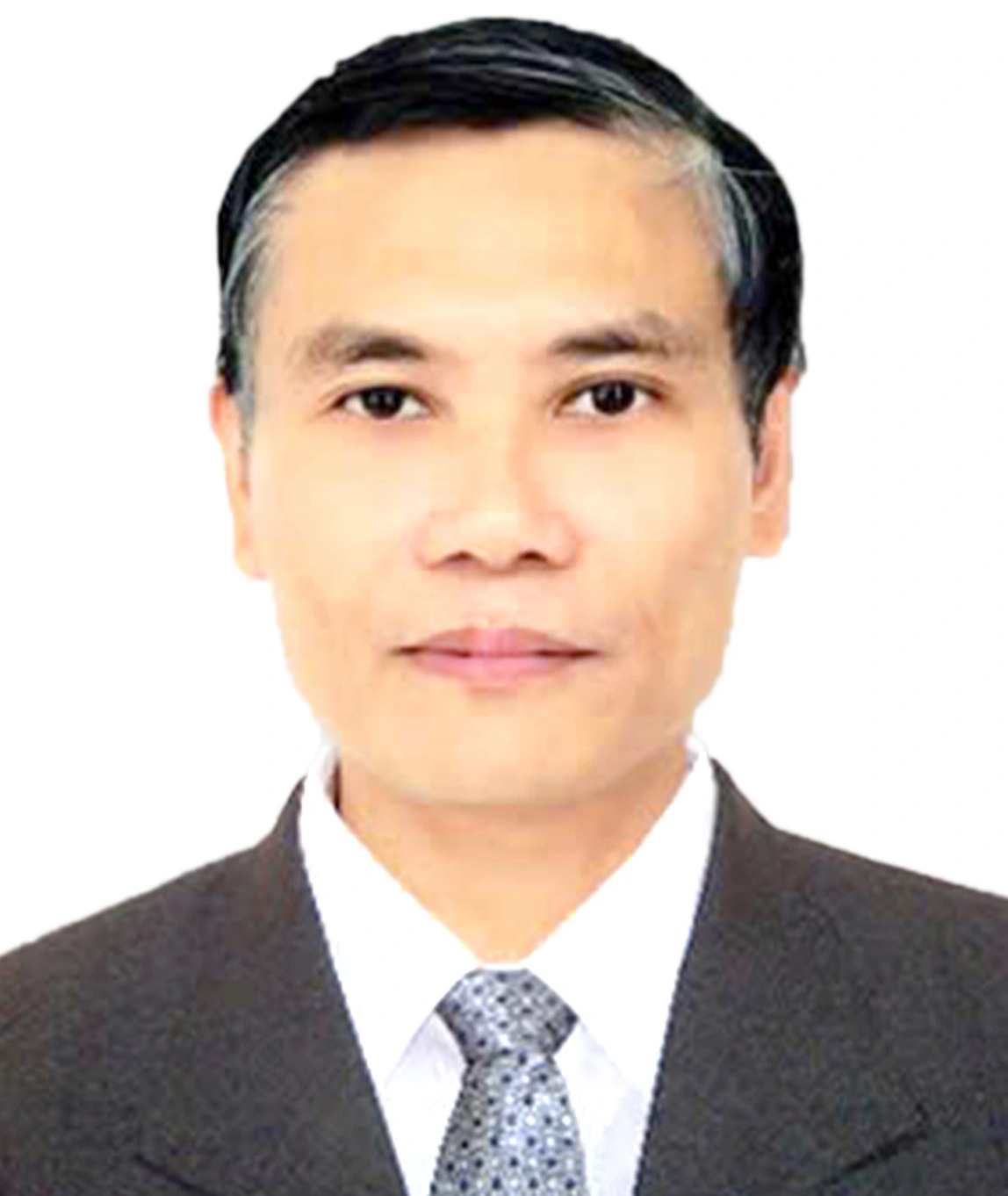
Must be carefully considered
If the above policy is in place, medical students across the country will have much less pressure on tuition and living expenses and will feel secure in their studies.
However, such a big policy needs consultation, discussion, and careful research...
This is a big story related to the medical industry's treatment policies, job positions after graduation, salaries, etc., so it needs to be considered carefully and fundamentally.
And this is just one of many different proposals that seek to support medical students. Making student loans available is also a good way…
* Doctor NGUYEN HUU TUNG (Chairman of the Board of Directors of Phan Chu Trinh University, Permanent Vice President of the Ho Chi Minh City Private Medical Practitioners Association):
Beware of the side effects

Tuition exemptions for medical students can reduce investment from schools and efforts from students. This affects the quality of training.
Pedagogy and medicine have different purposes and missions. Pedagogy trains people who build the human foundation for society.
The medical industry ensures people's health and that is a service. Part of healthcare can be seen as a market service.
Medical training is quite specific, requiring large investments in equipment, programs, staff, training methods, clinical practice, etc.
Not to mention quality, the minimum requirements for medical training are already very high.
This requires schools to invest heavily to ensure minimum requirements. If tuition fees are exempted for students, it may affect the investment process from schools, reducing students' motivation to study. This will negatively affect the quality of training.
Should the State have a clear credit policy so that banks have financial institutions to lend to medical students?
When students need loans, they are supported and must try to study well to graduate, go to work, and pay back the loan. Famous medical schools all have very high tuition fees and students can borrow to pay for their education.
There are many other ways to support
It is necessary to consider exempting tuition fees for medical students. Instead of exempting tuition fees for medical students, it is only necessary to maintain the policy of granting scholarships to students in difficult circumstances and students with good academic results to encourage efforts in studying and scientific research as it is now.
The socialization of student support activities should also be enhanced. These could be scholarships, grants or medical facilities that accept students for internships and practice.
DUY ANH
According to current regulations, teacher training students are supported with tuition fees equal to the tuition fees charged by the teacher training institution where they study. At the same time, they are supported with 3.63 million VND/month to cover living expenses during their time studying at the school.
According to statistics from the Ministry of Health, the country has 214 medical personnel training facilities. The number of doctors graduating in 2023 is 11,297; the number of pharmacists graduating is 8,470 and the number of nurses graduating is 18,178.



![[Photo] General Secretary To Lam receives King Philippe of Belgium](https://vstatic.vietnam.vn/vietnam/resource/IMAGE/2025/4/1/e5963137a0c9428dabb93bdb34b86d7c)
![[Photo] Close-up of Vietnam's sniffer dog team searching for earthquake victims in Myanmar](https://vstatic.vietnam.vn/vietnam/resource/IMAGE/2025/4/1/d4949a0510ba40af93a15359b5450df2)
![[Photo] Prime Minister Pham Minh Chinh meets with King Philippe of Belgium](https://vstatic.vietnam.vn/vietnam/resource/IMAGE/2025/4/1/be2f9ad3b17843b9b8f8dee6f2d227e7)
![[Photo] President Luong Cuong and King Philippe of Belgium visit Thang Long Imperial Citadel](https://vstatic.vietnam.vn/vietnam/resource/IMAGE/2025/4/1/cb080a6652f84a1291edc3d2ee50f631)






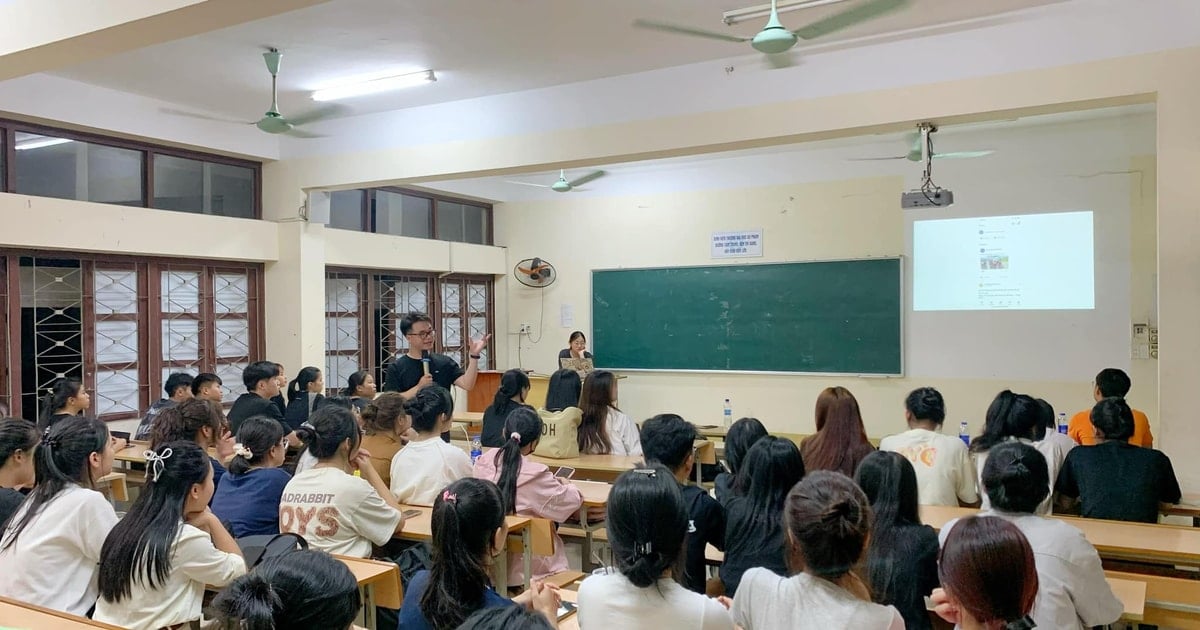

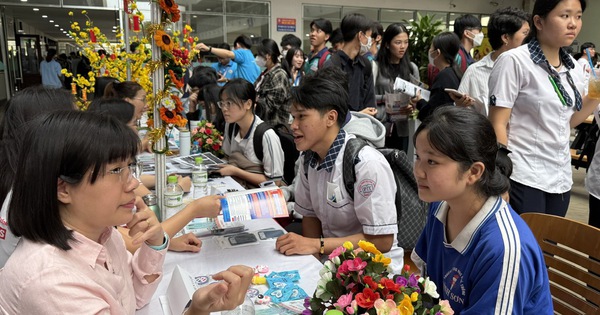

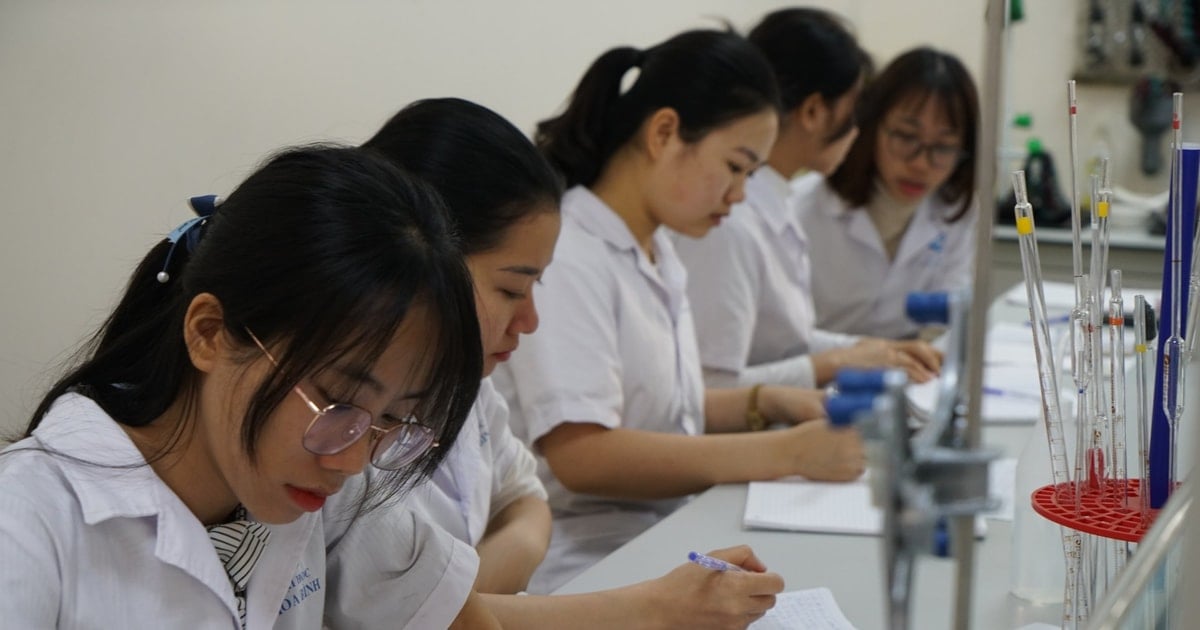











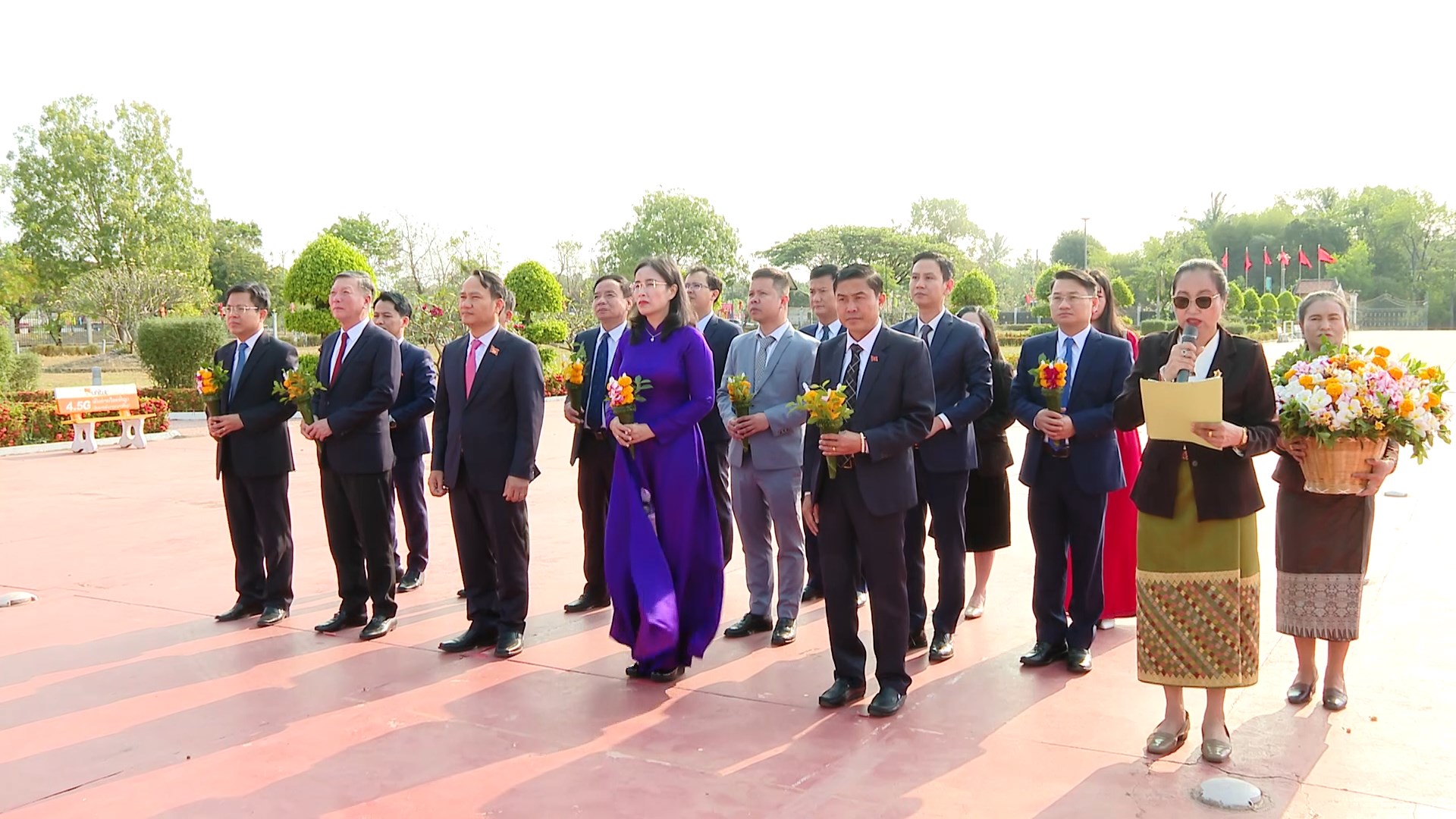
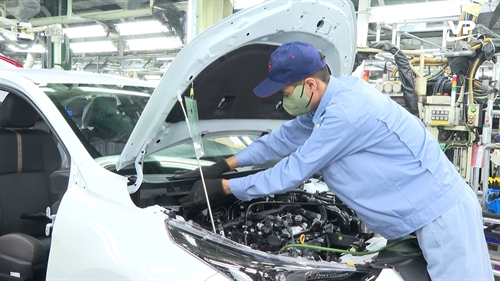

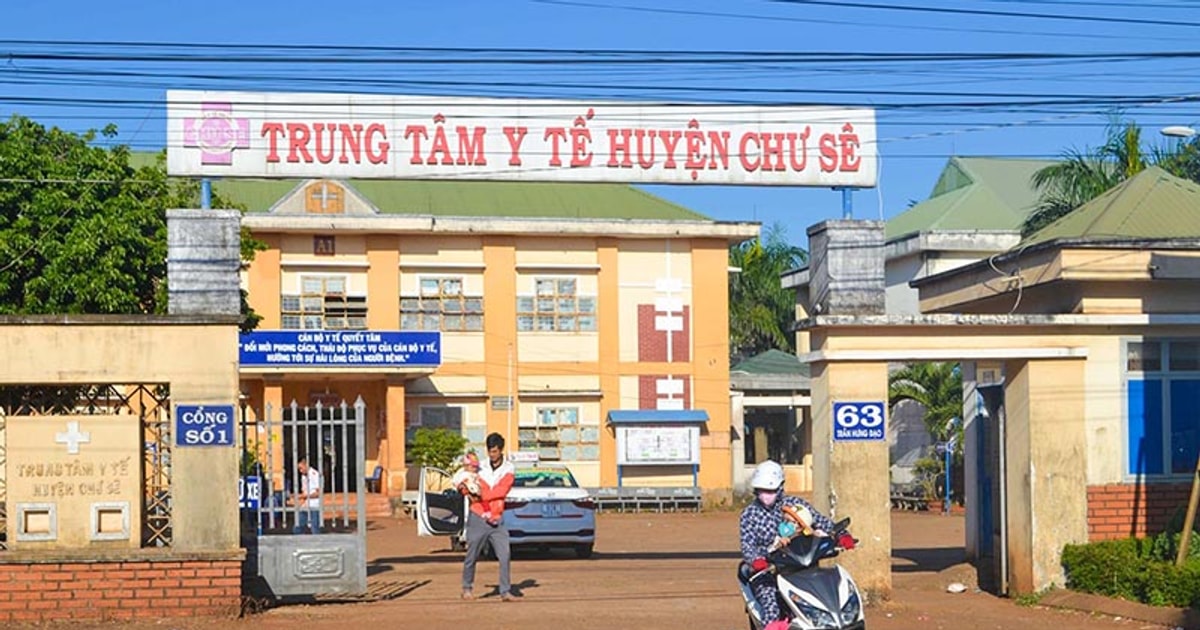

![[Photo] Myanmar's capital in disarray after the great earthquake](https://vstatic.vietnam.vn/vietnam/resource/IMAGE/2025/4/1/7719e43b61ba40f3ac17f5c3c1f03720)








































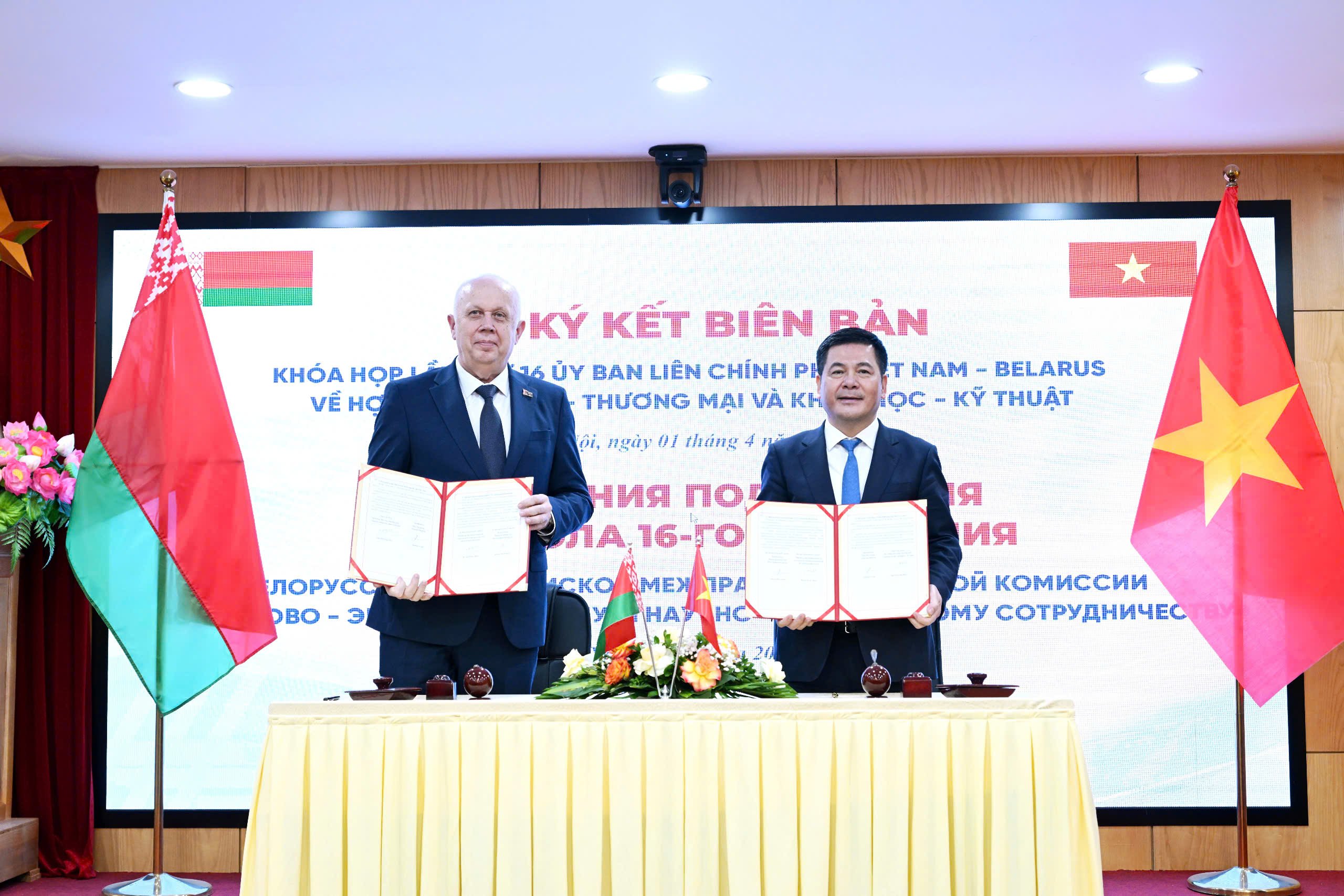


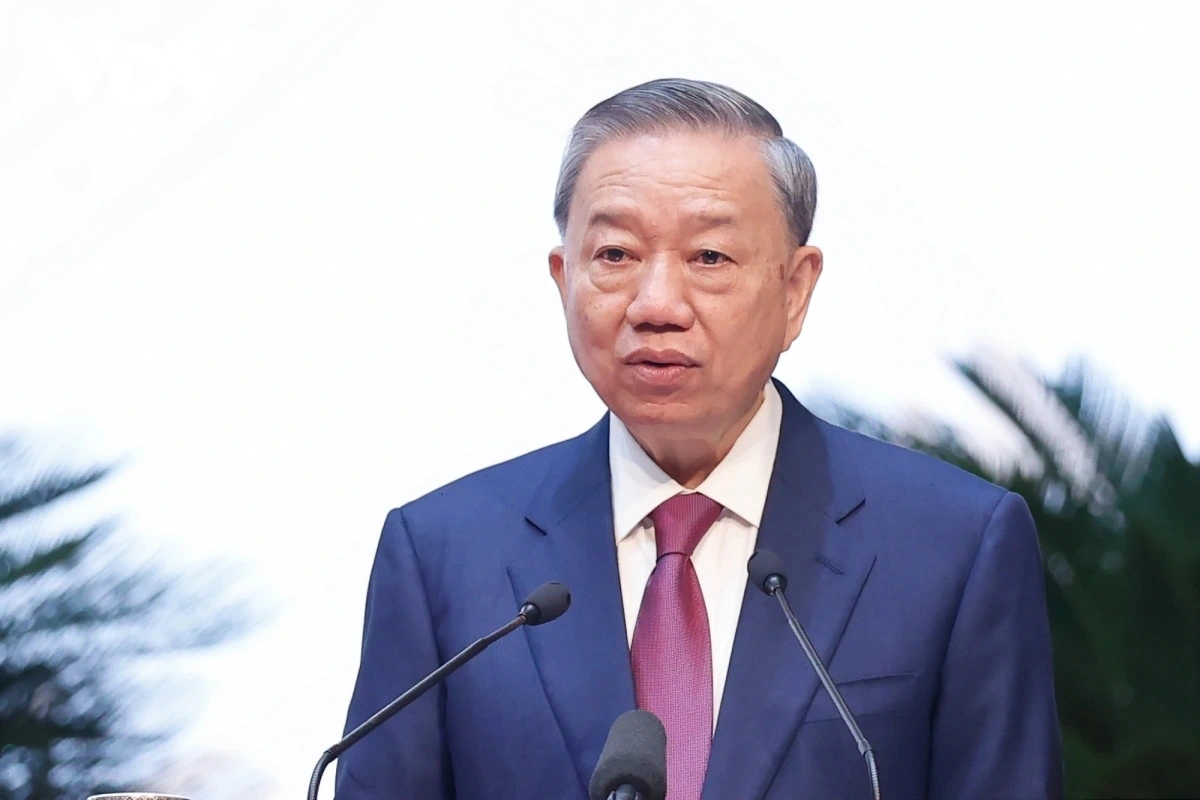














Comment (0)